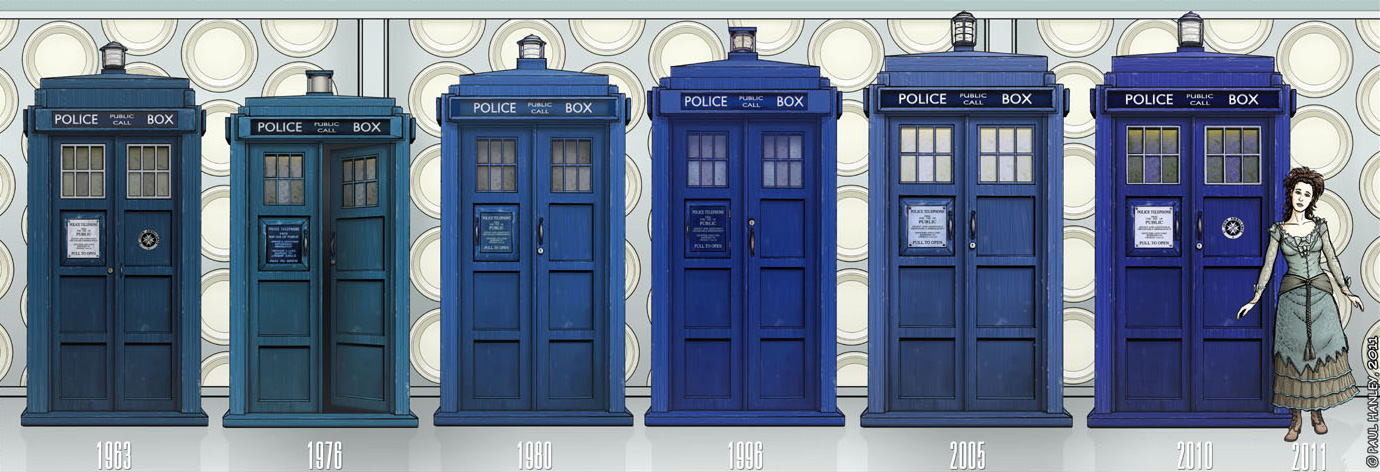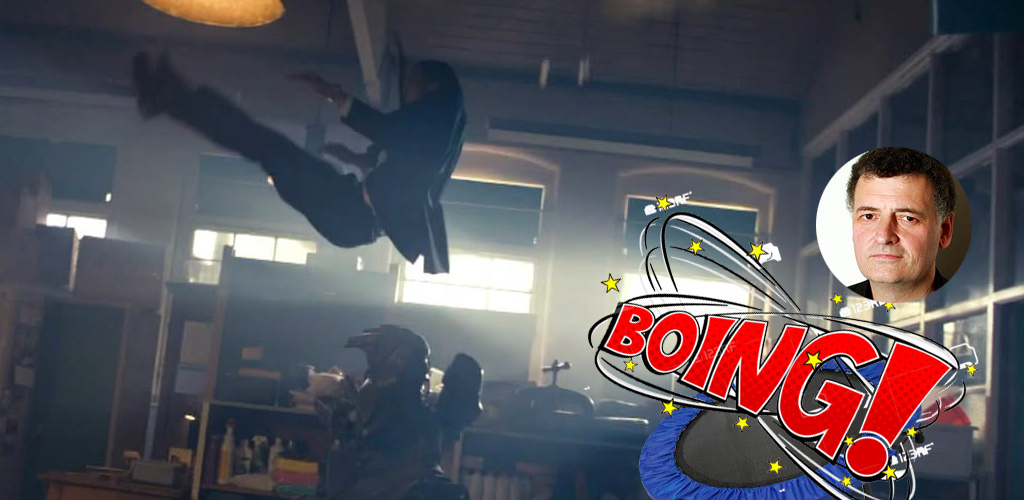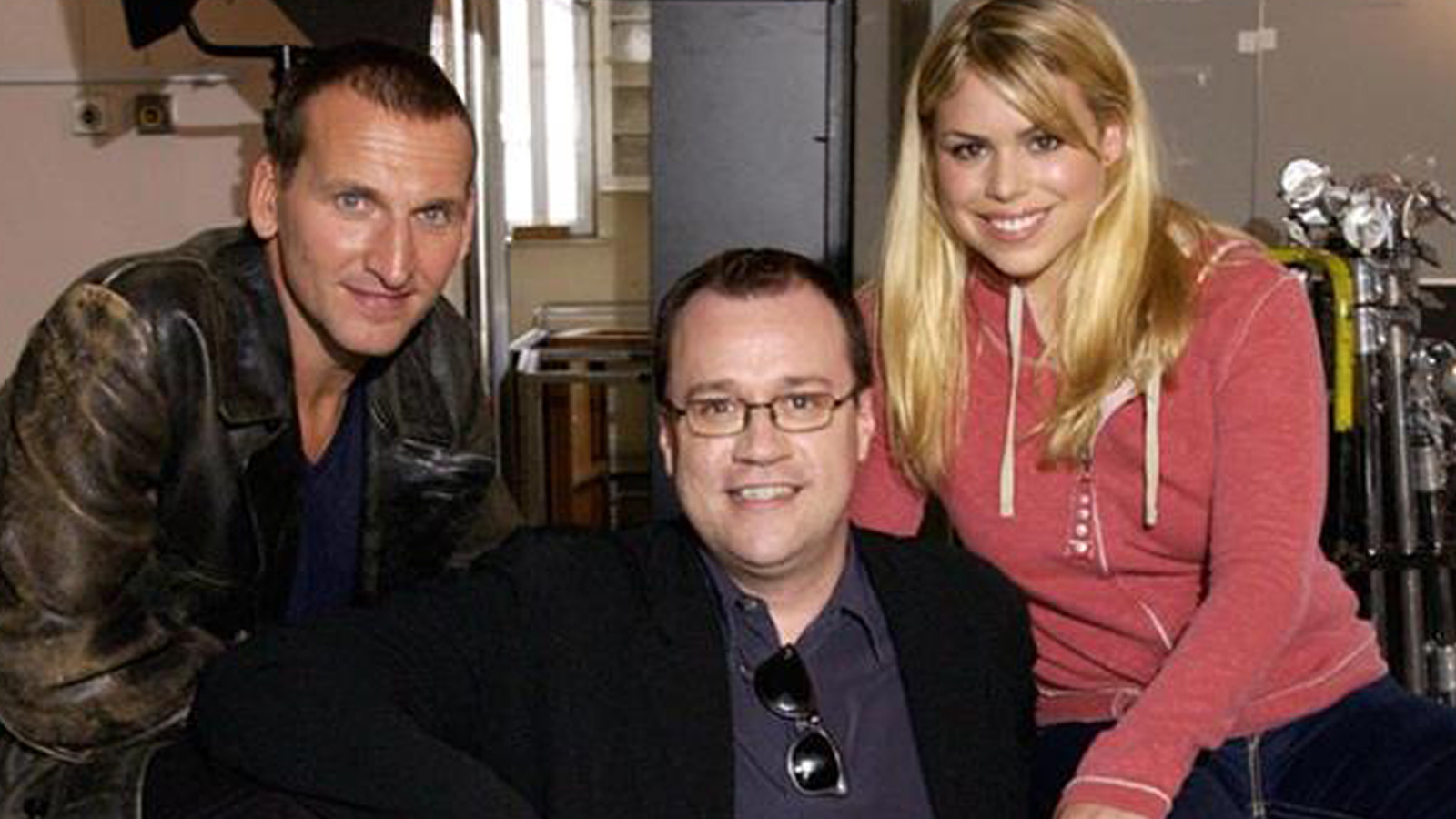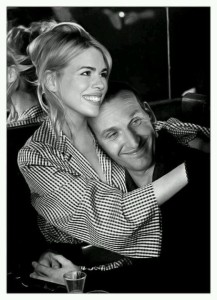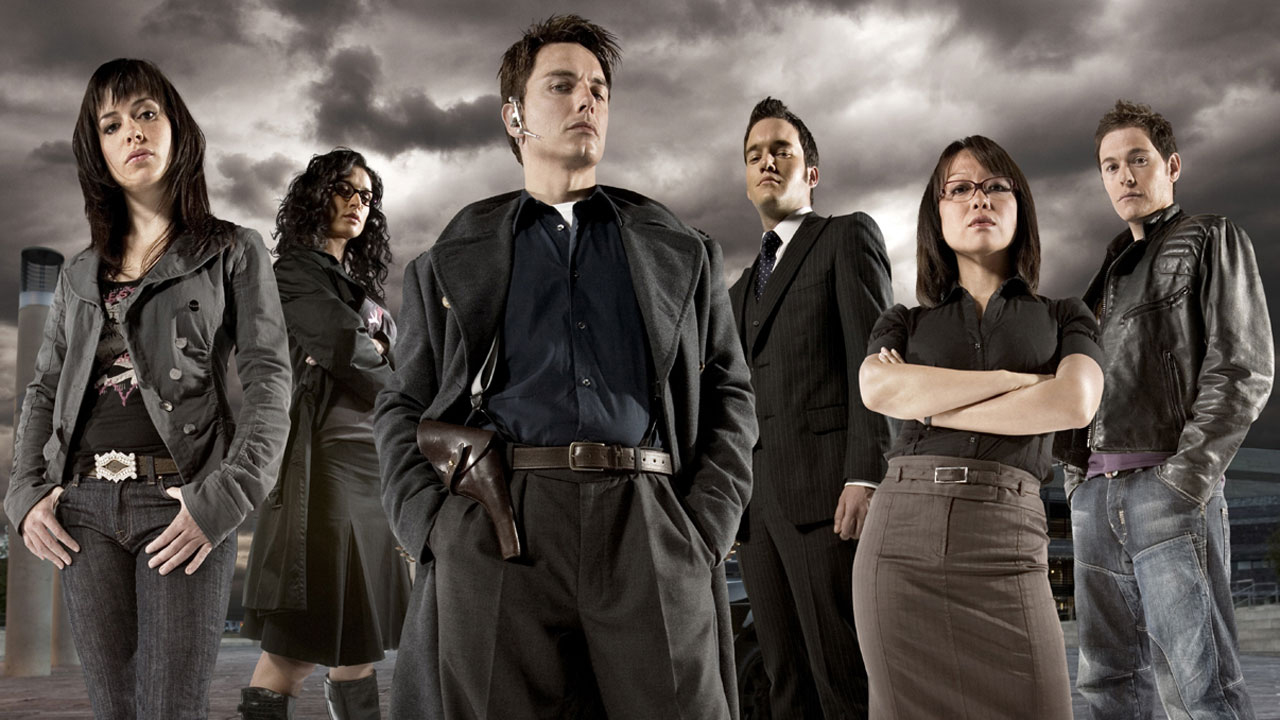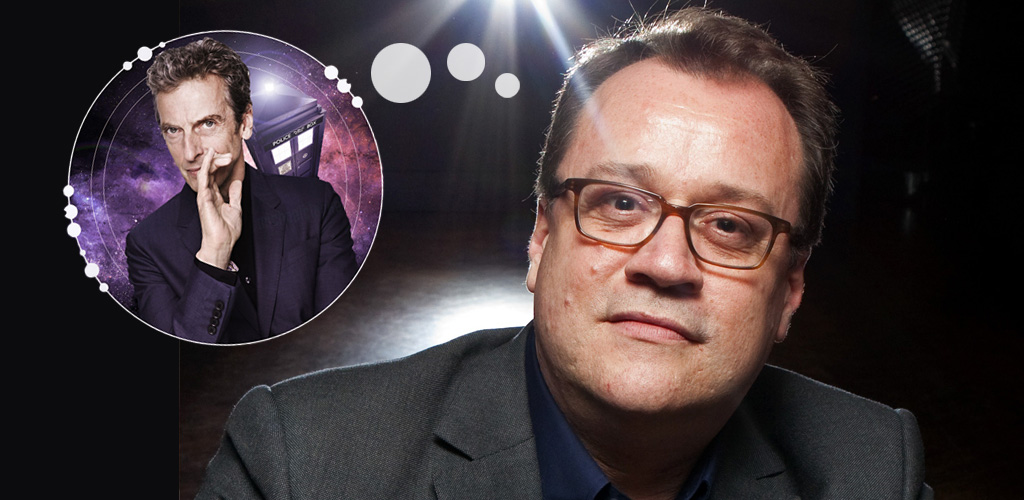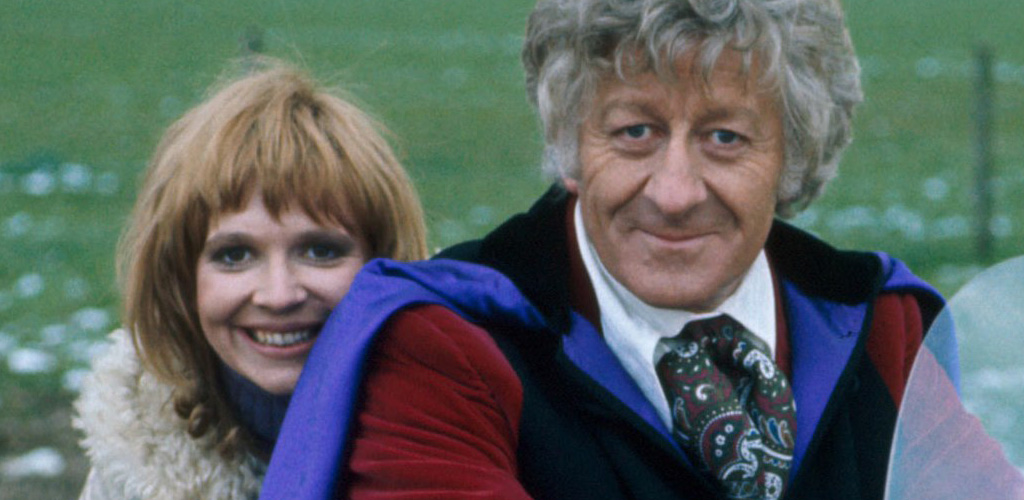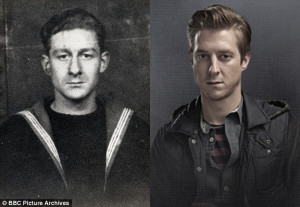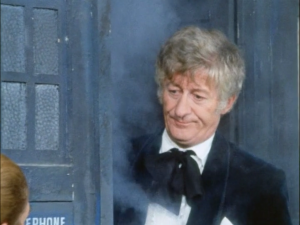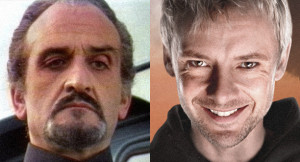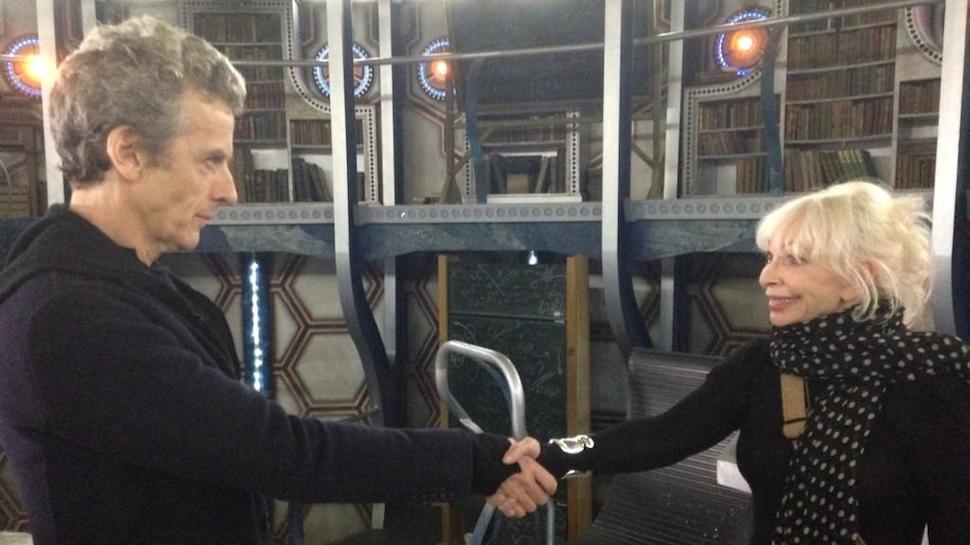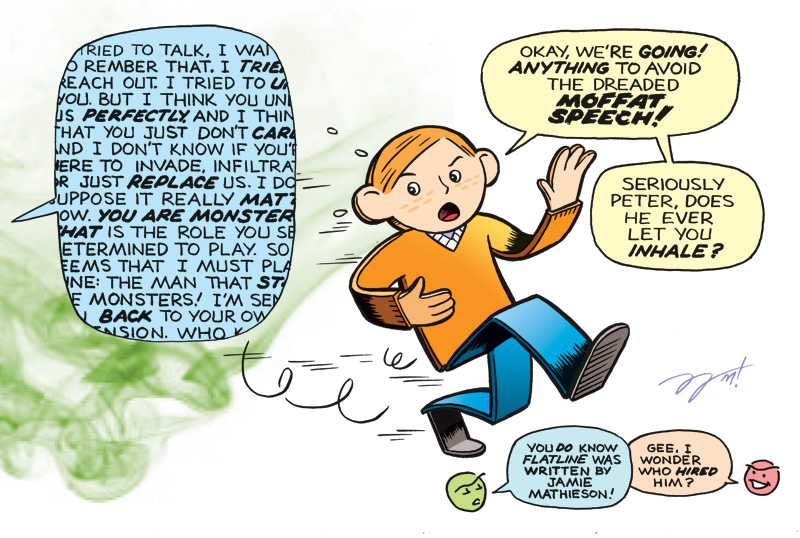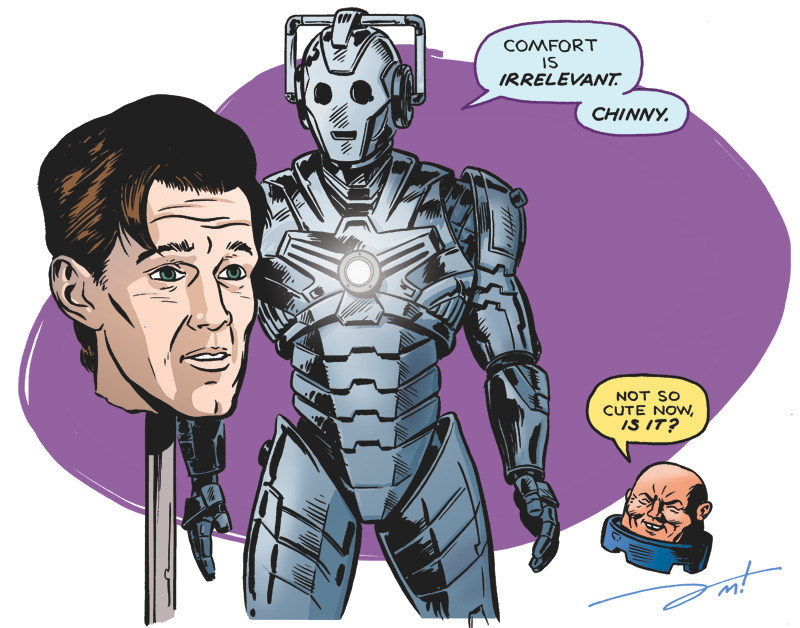“…You call Me ‘Sexy’.” There is something sensuous about the angles and curves of the console, the way one’s hand would maneuver dials and levers — something tantalizingly mysterious in placing travel through all of time and space into TARDIS hands. Before you claim that the TARDIS is simply a machine, purely AI at best, be assured that a TARDIS is a “living, semi-sentient creature.” fully capable of developing affection for alien or human beings. The TARDIS is birthed from a form of Distributed Cluster Algebra — block mathematics — originally devised by the people of Logopolis. Incubated in Dimensionally Transcendental Cradles (located in the Gallifrey Black Hole Shipyard), the young TARDIS spends a decade using transdimensional engineering to grow its interior and exterior shells. At ten, the Time Lords implant the temporal drive and the chameleon circuit as well as either XX or XY circuitry for gender. A male TARDIS, however, is rare. Less than 1 of 100 become male, based on the fact that only 1 out of 80 Time Lords are female. It appears that to date, TARDIS/Time Lord relationships are only heterosexual in nature.
Despite the contention that a TARDIS is grown and not built, the plaque of each TARDIS states:
- TARDIS
- Time and Relative Dimension in Space
- Build Site: Gallifrey Black hole Shipyard
- Type ## Build Date: ####
- Authorized for use by qualified Time Lords only
- By the Shadow Proclamation
- Misuse or Theft of any TARDIS
- Will result in extreme penalties and possible exile
It is common knowledge that a TARDIS chooses its Time Lord. Though, there is some indication that certain Gallifreyans with a symbiotic nuclei may purchase a TARDIS. The symbiotic nuceli is a modification of biodata completed at the Time Lord Academies. At this crucial point, let us look at the Rassilon Imprimature, a “symbiotic bond of transcendent biomechanics” that is at the root of a connection so intimate, it can be described as sexual.
- “Warning. It is useless to try operating this machine until the correct telepathic link has been established. This link is known only to the Owner of this Type 40. Attempts to tamper with the control console will be met with the strongest possible retaliation.”
- TARDIS Type 40 Master Control Console Operating and Repair Manual
Once this bond is established, the link makes Time Lord and TARDIS one — inseparable “soulmates.”
The intimate nature of the relationship between Time Lord and TARDIS was shown well in “The Doctor’s Wife” (written by Neil Gaiman). In this 4th episode of the 6th series, the TARDIS was portrayed physically by Suranne Jones. The heart and soul of the TARDIS is drained and replaced into a woman named Idris, chosen for this by House, the sentient asteroid where the Doctor has landed. When Idris first sees the Doctor (Matt Smith), she kisses him, then bites him. She refers to him as her “thief.” “Thief” is a reference to the canon that the first Doctor has stolen this TARDIS, though there are varying stories as to how the theft came about. The Doctor and Idris create a visible bond that emanates their love for each other. The human body, however, cannot withstand the drain of the TARDIS core, and eventually Idris succumbs to her weakening and dies, while the matrix is released back into the main control room. One final, emotional conversation with the Doctor ensues as the TARDIS matrix projects itself onto Idris’s body. The conversation is tender and heartbreaking, ending with the matrix’s whispered words, “I love you.”
Though this is not the first time that the TARDIS has taken physical form, the utilization of the word wife and the nature of the communication between Idris and the Doctor has been said to cement the relationship of intimacy that a Time Lord and its TARDIS share. Previously, the TARDIS has taken on the form of Brigadier Alistair Gordon Lethbridge-Stewart, a sentient TARDIS named Compassion, and Rose Tyler in the well-known episode, “Bad Wolf.”
The TARDIS, like sentient beings, is bigger on the inside. Exploring the corridors and rooms is guided by gentle light. The TARDIS, like compassionate beings, does not want an individual to become lost. Yes, the TARDIS is sexy, and the TARDIS does its best to protect; but perhaps a TARDIS recognizes the reciprocal balance, beauty, and intense power of love too.
“Call Me Sexy” illustration by Paul Hanley
